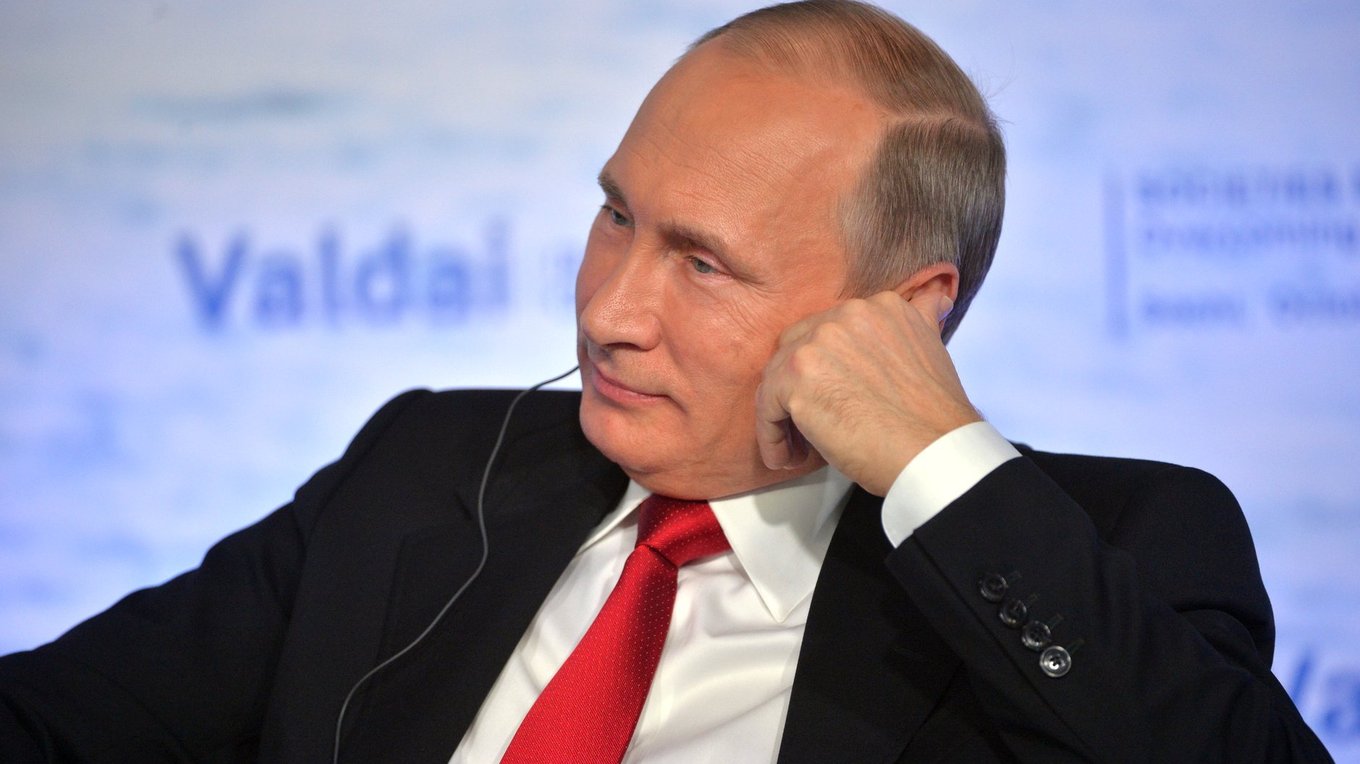At the end of May, The Council of Foreign and Defense Policy (SVOP) introduced the long awaited theses on Russian foreign policy of late 2010 – early 2020s. According to the authors, these theses are designed to give Russian foreign policy a “new intellectual impulse” and become the basis for drawing a new foreign policy Concept which would govern Putin’s anticipated 4th presidential term. The high profile of the authors and the logo of the oldest Russian foreign policy think tank speak to the importance of the paper written for the highest audience in the country.
In the theses, the authors try to combine highly discordant evaluations and proposals, accommodate cautious hints to real existing problems and proclamations in favor of provisions that became generally accepted in Russia after occupying Crimea. They do not, however, take into account the state of Russia’s economy beyond mere mention of its decline.
From the very beginning of the theses, the authors demonstrate a highly specific approach to measuring “success”. Stating that “the level of economic development remains the main marker of power and influence of the state in the world”, the authors frankly name Russia’s biggest problem – “economic stagnation worsening in the last 8-9 years.”
It is hard to argue with this. Prior to Crimea’s occupation, in 2013, Russia’s GDP stood at $2.231 billion, dropping to $1.324 billion in 2015, and is expected to drop further still this year to $1.132 billion. Compare this to China’s GDP in 2015 of $10.982 billion, or the United State’s GDP of $17.947 billion. By the end of 2016, Russian GDP will be 10 and 17 times smaller than China and the U.S.’s respectively. This is why it is unclear how Russia can claim its place among the “triangle of great powers: Russia, China and the U.S.” In fact, according to the authors’ logic, economic failure of Russian policy of the last decade – especially the systemic economic crisis, drop in GDP and virtually all macroeconomic markers over the last couples of years – should not be regarded as a success of the government’s foreign policy course. Nevertheless, the authors claim that: “Russian foreign policy of the last decade was mostly successful. Diplomacy was truly masterful.” One can therefore argue that for the Russian foreign policy strategists, the economy is neither so important, nor comprehensible.
Indeed, after an obligatory affirmation that “among the factors defining the international agenda, weight and influence of the state, economic, scientific and technological [advancements] prevail,” the authors list the achievements which, according to them, indicates Russian foreign policy has been a success.
The first achievement of the country’s foreign policy is the “recreation of military might” which, according to the authors, compensates for a “deficit of other factors of strength – economic and informational.” The authors deserve credit for cautioning that a “new arms race” should be avoided, although it is not clear how this is possible, considering that the second achievement is the “cessation of expansion of western institutions and alliances on the territories that Russia considers vital for its security.” The authors disconcertingly speak of the “fruitlessness of attempts to come to an agreement in a friendly matter” with the West which exerts “the most severe pressure, unseen since the 1980s, openly aiming at a “regime change.”
In the spirit of Kremlin propaganda of the most heated moments of the Ukrainian revolution and the subsequent war, the authors proudly state that Russia practically saved the world from an “even more dangerous collision” (read – bigger war in Europe), striking a “preemptive attack” by annexing Crimea and by stopping, as the authors see it, Ukraine’s movement towards NATO and EU. With regards to Donbas, the authors openly propose to undermine Minsk agreements: “it is better to have semi-independent, but formally Ukrainian territory, that helps Russia, basically a “frozen” conflict”.
Even more debatable is the thesis that Russia was able to “stop or even reverse the collapse of the post-soviet andhistorical Russian imperial space”. Ukraine is lost as as a partner who trusts Russia, and can do honest business with the country, maybe for decades. After Russia occupied Crimea, Belarus started speaking Belarusian, stopped being “the last dictatorship of Europe,” and now actively builds contacts with the EU. Kazakhstan now realizes multi-directional policy where Russia is just one of the partners, and whose influence has been steadily declining – for example, direct foreign investment from China to Kazakhstan has amounted to $23.6 billion and only $3.4 billion from Russia. Russia came to terms with Moldova shifting towards the European Union and it finds it more and more difficult to support Transnistrian “independence.” We should also keep in mind the recently resumed Nagorno-Karabakh conflict, where on the one side is formal Russian ally and member of the Eurasian Economic Union (EAEU), and on the other, Azerbaijan to whom Russia sold weapons – worth 20 times the value of what has been sold to Armenia.
It is worth noting that the authors of the theses very consciously do not limit themselves to the “post-soviet” space, expanding it to the (somewhat uncommon for the debate) “historical Russian imperial space”. This is to show the succession of foreign policy goals and objectives of the Russian Empire, USSR, and now the Russian Federation. It is hard to imagine better proof of active “post-imperial” syndrome of Russia’s intellectual elites.
The authors’ take on the grand geopolitical future of Russian-Chinese relations is an especially interesting topic. They are convinced that there are prerequisites for the creation of “Greater Eurasia” which will be able to compete with the bigger euro Atlantic alliance which is expanding via the Trans-Pacific Partnership (TPP) and Transatlantic Trade and Investment Partnership (TTIP). Those who used to promoted the idea of a “Greater Europe” and that Russia belongs to the western world, today proclaim the formation of a “new (soft) bipolarity” where Russia, along with Iran and India, would be given a role of a junior partner of China. Moreover the authors are convinced that the change of Russia’s geopolitical orientation from European to Eurasian, from “Greater Europe” to “Greater Eurasia” would eventually lead to formation of “Community of Greater Eurasia from Singapore to Lisbon”. It is notable that according to the authors, this new alliance should be built around the Shanghai Cooperation Organization (SCO) which can be considered neither effective nor efficient. Moreover, it is doubtful that China is actually interested in realizing this particular vision of future relations with Russia.
But even more unrealistic is the authors’ thesis on “re-ideologization of international relations.” They are convinced that we are witnessing Russia’s “arising ideology of new conservatism” featuring “sovereignty cult” and a “model of leadership democracy” that is attractive for the major part of the world, including to some in the West. According to the authors, among the set of values that “new conservatism” promotes are: “political and cultural pluralism, freedom of choice instead of Western universalism, state sovereignty, national dignity, non-interference in internal affairs, the reliance on traditional social, personal and family values, support for religion, the rejection of militant secularism”. It is beyond the scope of this paper to examine each of these values, but I would argue that Ukrainians might disagree about the existence of values such as Russian conservatism as respect for “state sovereignty” and “non-interference in internal affairs.”
It is remarkable that after all the deliberations on foreign policy arrangements, the authors’ main conclusion and recommendation of the theses is the “need to transfer the attention of the state and society on the problem of domestic economic development, preservation and recovery of human capital.”
It is impossible not to agree with this conclusion, although it is difficult to imagine a logical chain which ties all the above-mentioned with the objectives of internal economic development. Development and strengthening of military capabilities, an alliance with China (which does not need a diversified economy in Russia), and the “containment of the West” have nothing in common with economic growth. Moreover, the commitment of the authors to see Russia as a counterpoise to the West with a compulsory military component produces additional obstacles and constraints for economic growth. One cannot help but recall the history of the Soviet Union, which ended as a result of an overextension of resources, the collapse of the economy, and ultimately the collapse of the state.
But one should not be surprised after all. Authors of the theses call to recognize the “value of grandpowerness” as a constant “incarnation” the assurance “of which came with a great price”. Russia is already paying for it, and the bill grows by the month. But this “grandpowerness” is purely illusory. One can conclude that while the authors are no fools, they were limited by the constraints cemented after the annexation of Crimea: mandatory confrontation with the West, pivot to the East, traditional values and sovereignty cult. Awkward statements on the need to “restore economic growth” in the text is the only realistic assessment of the authors.
Even if one puts aside all unrealistic proposals presented by the authors, and accepts their vision of the “Eurasian” future for Russia, one question remains unanswered: how will Russia’s economy, already under great stress, survive another round of “historic” confrontation with the West? Without providing an answer on how to “pay” for this greatpowerness, this concept is neither wholesome, nor consistent.










